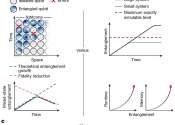Researchers design new techniques to bolster memory safety
Because corporations and governments rely on computers and the internet to run everything from the electric grid, healthcare, and water systems, computer security is extremely important to all of us. It is increasingly being ...
Jun 23, 2021
0
12









